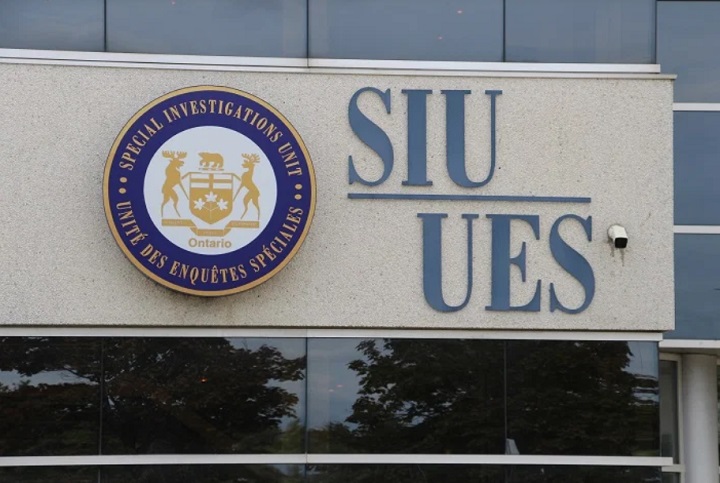Ontario’s police watchdog has found no reasonable grounds to believe a police officer committed a criminal offence after a London, Ont., man died in custody in February.

Fabian Hart, 34, was arrested Feb. 1, 2021, and placed in a London police cell, the Special Investigations Unit reported at the time. He was pronounced dead in hospital the following day after going into medical distress while in custody. The cause of death has since been attributed to “methamphetamine – amphetamine toxicity.”
While the SIU now says “it might have been advisable for the officer to have taken Mr. Hart to hospital sooner than was the case,” it notes there was “insufficient evidence to reasonably conclude that the officer’s failure to do so amounted to a marked departure from a reasonable standard of care.”
According to the SIU’s report, Hart, identified as the complainant in the report, was arrested by two officers on the afternoon of Feb. 1, 2021, for violating a judicial order to stay away from a woman.
Hart was placed in a police cell at roughly 4 p.m. and, when asked about his condition, told the sergeant in charge of the cells at the time that he had previously consumed three shots of alcohol and expected to experience withdrawal symptoms at some point. “He denied having consumed any drugs prior to being arrested,” the SIU said.
At roughly 1:40 a.m., the sergeant in charge of the detention unit at that time checked on Hart, who was shaking. Hart said he was suffering alcohol withdrawal and needed sugary drinks and the sergeant brought him juice and cereal bars, the SIU said.
Twenty minutes later, while Hart was being transferred to another cell, the SIU said he told the sergeant he was concerned about having a seizure and the sergeant reminded him to tell staff if he needed any help. The sergeant told two cadets to keep a close eye on Hart and let him know if his condition changed.
The officer at the centre of the SIU’s investigation, identified in the report as the subject officer, came on duty at around 6 a.m. and took over from the overnight sergeant. The report noted that the subject officer declined to be interviewed or to provide notes, as is his legal right.
The SIU reported that the subject officer and the sergeant discussed Hart’s symptoms of alcohol withdrawal.
Two hours later, at around 8 a.m., the SIU said the subject officer had a phone call with another officer who was trained as a paramedic about the condition of prisoners, which at the time was only Hart. The subject officer told the officer on the phone that Hart was shaking severely but “he was young and not in bad shape,” the SIU said.
The SIU reported that the other officer said to take Hart to hospital if his condition worsened.
Shortly after an 8:20 a.m. cell check, an LPS employee told the subject officer that he was worried about Hart’s health. The subject officer contacted two officers at 8:30 a.m. and made plans to have Hart taken to hospital but 10 minutes later it was clear that Hart needed immediate medical attention, the SIU reported.
The SIU said “over the course of the next several minutes,” the subject officer, an LPS employee and two other officers administered life-saving measures, “including chest compressions, the administration of naloxone, and the use of an AED.”
Paramedics arrived at roughly 8:50 a.m. and took over Hart’s care. He was pronounced dead in hospital at 9:42 a.m., the SIU reported.
The SIU found that “for much of the roughly two-and-a-half-hour period that (Hart) was in the officer’s custody, his condition had been much as it was for most of his time in the cells.”
SIU director Joseph Martino noted in his final report that Hart was offered whatever assistance he needed and he never asked to be taken to hospital.
“The SO’s liability might have tipped in the other direction had he been aware that the Complainant had methamphetamine secreted on, and likely, in, his person,” Martino said.
“As the post-mortem examinations concluded, the Complainant died of methamphetamine-amphetamine toxicity — not of alcohol withdrawal. The Complainant, however, had denied consuming any drugs as he was being booked prior to being lodged in cells.”











Comments